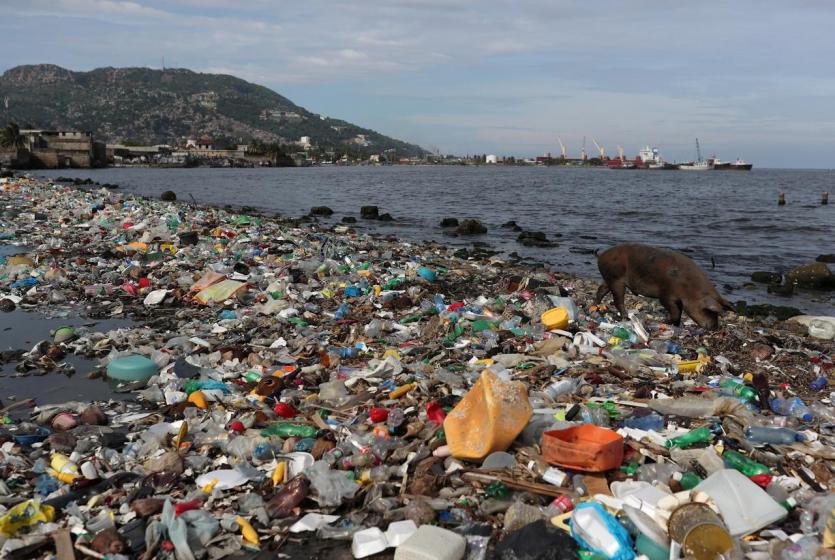Plastic and other debris are seen on the shores of Cap Haitian beach, in Cap Haitian, Haiti October 9, 2018. Photo:Reuters
Oceanic plastic pollution set to triple by 2040
By Patryk Krych | The World Daily | JULY 24th 2020
Within the next 20 years, the rate of plastic pollution is expected to be tripled by what it is now, while efforts to curb the rate of plastic pollution are gradually falling through, recently published study reveals.
Since the beginning of the pandemic caused by the outbreak of COVID-19, there has been a significant rise in the dumping of single-use plastics, bringing plastic pollution to rise overall, according to the International Solid Waste Association, an NGO. This primarily consists of sanitizer bottles, plastic gloves, and facemasks, all of which end up in landfills, or the oceans. Though there is greater attention put towards the plastic pollution crisis, the situation fails to see much in the way of improvement.
“All the initiatives to date make very little difference. There is no silver bullet, there is no solution that can simply be applied – lots of policies are wanted. You need innovation and systems change,” said Simon Reddy, international environment director at the Pew Charitable Trusts, which had led the research. “That there is likely to be three times more plastic waste by 2040 is a shocking revelation.”
The exact amount of plastic in the oceans is said to be difficult to narrow down. However, an estimate made back in 2015 placed the total number to be somewhere around 150 million metric tons. By 2040, this number could become 600 million metric tons, if things go on as they have up until now.
The research was made and produced by the Pew Charitable Trusts and SYSTEMIQ, Ltd., a London-based environmental think tank. On top of the estimate, the researchers had offered a potential solution that could end up cutting the estimated volumes of plastic by an entire 80%. This cut would, however, require a wholesale restructuring of the current global plastics-producing industry, in a way that would end up shifting it into a circular economy that places its focus on reusing and recycling plastics.
“Plastic pollution is something that affects everyone. It isn’t a ‘your problem and not my problem’. It’s not one country’s problem. It’s everyone’s problem,” said the senior manager at Pew and co-author of the study, Winnie Lau. “It’s going to get worse if we don’t do anything.”






